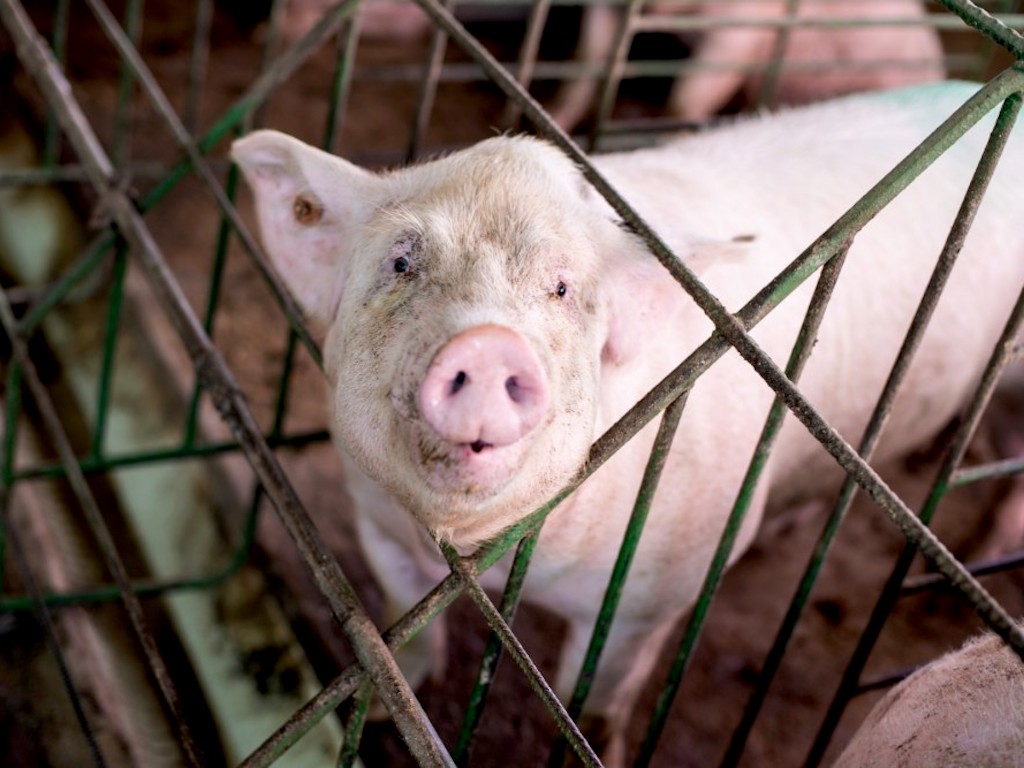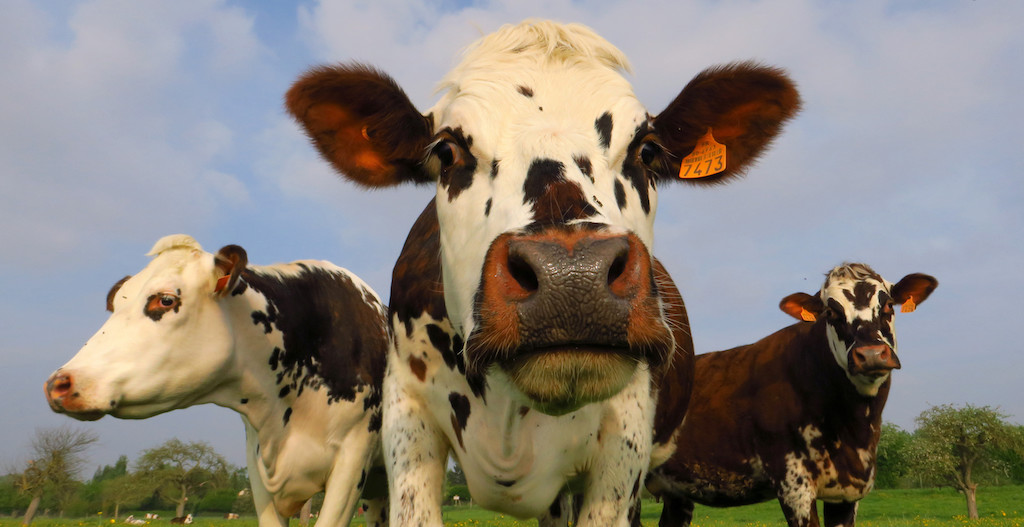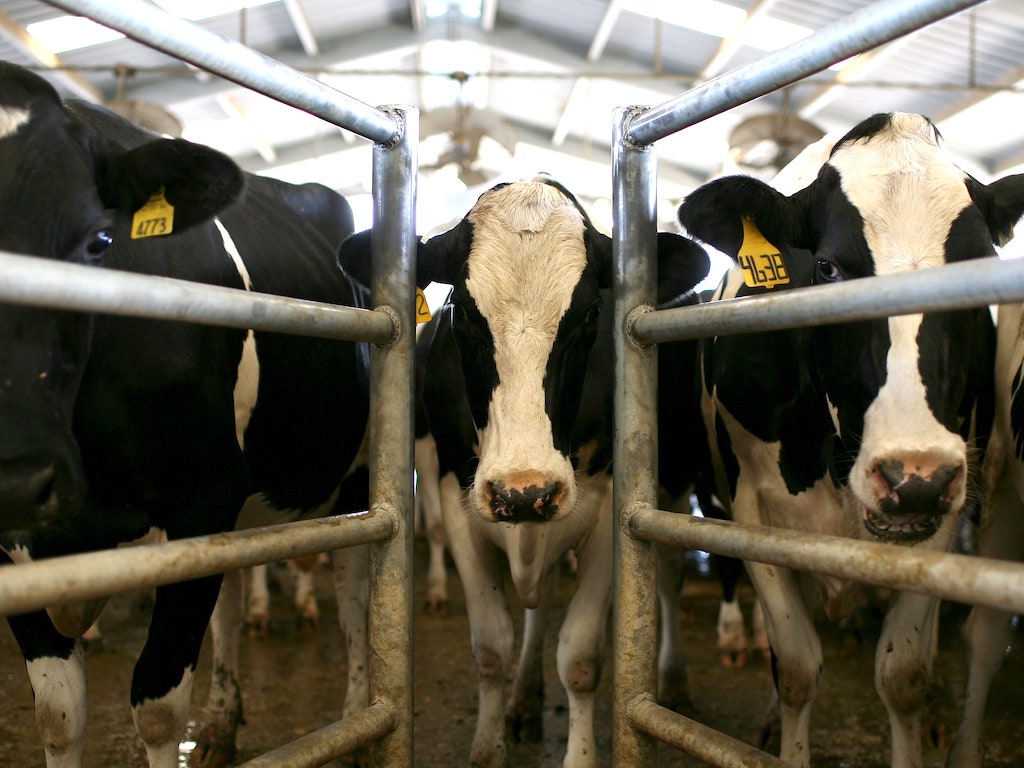4 Mins Read
The meat and dairy industry in the European Union (EU) produces “more emissions than cars and vans combined,” according to a new Greenpeace report. The analysis, which tracks how the demand for animal meat has directly contributed to Europe’s climbing carbon footprint, says that the bloc must introduce policies to slash emissions from the sector in order keep up with the targets set out under the Paris accord.
Titled Farming for Failure, the new Greenpeace report finds that when the impact of livestock feed is taken into account, livestock in Europe are emitting more greenhouse gases annually than all the cars and vans in the bloc combined.
According to data from the U.N. Food and Agriculture Organisation (FAO), livestock on EU farms, including that from the U.K., account for 502 million tonnes of carbon dioxide equivalent per year mainly due to methane emissions, but when indirect greenhouse gases from deforestation and land use changes from feed cultivation are calculated, the industry’s annual emissions total 704 million tonnes of carbon dioxide equivalent. This compares to the 656 million tonnes of carbon dioxide coming from Europe’s cars and vans each year.
Despite the scale of emissions from animal farming and animal product consumption in the EU, politicians thus far have failed to address the problem.
Farming for Failure, Greenpeace 2020

As the demand for meat and dairy continues to rise, between 2007 and 2018, the EU’s livestock production grew by about 9.5%. Greenpeace’s report says that this translates to a 6% increase in annual emissions, which is around 39 million tonnes – equivalent to putting 8.4 million new cars on the road.
Analysts say that if this trend carries on, the EU is unlikely to meet its obligations to slash emissions under the Paris agreement. Despite the fact that the EU has strengthened its targets on curbing emissions levels under its European Green Deal, the report says that there is a key focus on renewable energy and transportation, while the impact of food and farming on climate change has largely been ignored.
“Despite the scale of emissions from animal farming and animal product consumption in the EU, politicians thus far have failed to address the problem,” the report said.
“Cutting meat and dairy is essential to achieve EU climate goals…The EU must tackle the overproduction and consumption of animal products in order to achieve the emission reductions needed to avoid climate breakdown.”
If intensive animal farming is halved, it would cut around 250 million tonnes of carbon dioxide emissions a year, about the same as the aggregate emissions from the 11 smallest-emitter countries in Europe combined, the report notes.

For the EU to seize the mitigation potential of the animal farming sector, it urgently needs to fully redesign its food and farming policies with the clear goal of transitioning to ecological and resilient small-scale farming, and healthier plant-based diets.
Farming for Failure, Greenpeace 2020
Other policy recommendations laid out in the report to meet EU’s climate goals include ending farming subsidies based on hectares and supporting farmers to transition away from animal agriculture, setting legally-binding maximum livestock density levels, and putting forward measures to shift consumption to plant-rich diets with a view to reduce meat and dairy intake by least 70% by 2030.
“Now policy-makers have the opportunity to implement policies that would lead to less and better animal farming, bringing much-needed reductions in greenhouse gas emissions,” said the authors of the report, who added that beyond tackling climate change, combating the intensification of animal agriculture is crucial to fight the risk of emerging zoonotic diseases such as Covid-19.
“For the EU to seize the mitigation potential of the animal farming sector, it urgently needs to fully redesign its food and farming policies with the clear goal of transitioning to ecological and resilient small-scale farming, and healthier plant-based diets.”
Similar calls have been made by the newly established European Alliance for Plant-based Foods (EAPF). Launched last week, the group is urging EU leaders for new laws that recognise the role of plant-based foods as part of the bloc’s Farm to Fork Strategy outlined in the Green Deal, including increasing investment into the sector’s research and development and incentivising farmers to transition into plant-based crop production.
Lead image courtesy of Getty Images.




